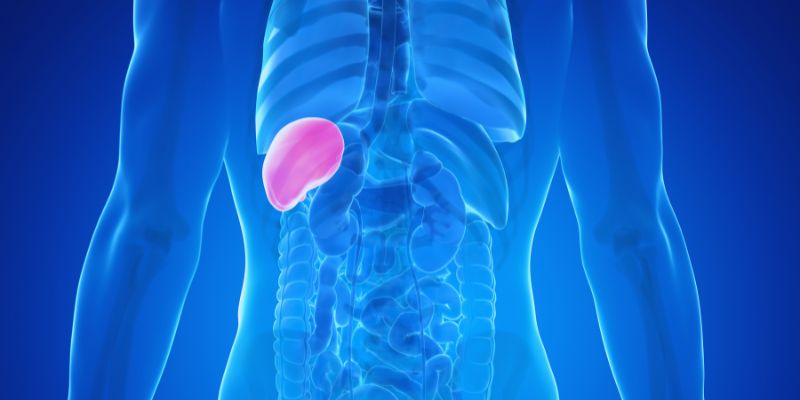The thalassemia hereditary blood disorder reduces the body's ability to produce normal red blood cells. Because of their reduced hemoglobin levels, those with this disorder get anemia and other medical problems. Moving oxygen throughout the body requires hemoglobin. The body fails to operate correctly when it is low. Depending on the type and hereditary elements, thalassemia might be minor or severe. Severe cases call for consistent medical treatments, including blood transfusions.
However, managing thalassemia can be difficult. These problems can compromise several human organs and systems. Correct management of the condition depends on an awareness of these hazards. This article will discuss the usual thalassemia problems, origins, and management strategies. It seeks to give families and individuals coping with this illness clear, useful knowledge.

Many major medical issues resulting from thalassemia call for constant medical attention and management:
Among the most typical consequences of thalassemia is iron overload. Regular blood transfusions generate excess iron in the body, which the body cannot normally eliminate. This additional iron can eventually harm important organs, including the endocrine glands, liver, and heart. Damage to organs can include diabetes, liver disease, and heart failure. Therapy for iron chelation helps the body eliminate extra iron, and preventing major medical issues requires this kind of care. Monitoring iron levels regularly is also quite crucial.
Severe conditions, especially thalassemia, can affect bone development. The bone marrow makes more effort to produce more red blood cells, which causes the bones—especially those of the face and skull—to expand and deform. Moreover, bone flaws could be caused by long bones and ribs. Young people with thalassemia could grow slowly and go through delayed puberty. Regular doctor visits and treatments help to control bone problems. Sometimes, extreme irregularities call for surgery to be addressed.
Filtering blood and fighting infections depend critically on the spleen. The spleen works more to eliminate damaged red blood cells in those with thalassemia, which can cause enlargement. This hypertrophy might aggravate anemia and bring about pain. Doctors occasionally may advise a splenectomy, the surgical removal of the spleen. Eliminating the spleen, however, raises susceptibility to infections. Patients need routine vaccines and persistent medical attention following the operation to reduce their risk of infections and guarantee improved long-term health management.

The heart may be greatly compromised by iron excess. Cardiomyopathy results from excess iron building up in the heart muscles. Heart failure results from this disorder, which weakens the heart. Arrhythmias and abnormal heartbeats are another possibility for patients. Regular monitoring of heart health is vital. Doctors can use MRI scans to examine cardiac iron content. Iron chelation therapy can reduce iron accumulation and safeguard the heart.
Excess iron stored by the liver can, over time, cause major liver damage. This iron accumulation can cause major disorders in thalassemia, including fibrosis or cirrhosis. Furthermore, thalassemia sufferers have a higher chance of getting hepatitis infections from blood transfusions. Any early indication of liver damage depends on regular screening for its condition. While safe blood transfusions and immunizations against hepatitis are vital for preserving general health, iron chelation treatment helps stop more iron deposition in the liver.
Children with severe thalassemia sometimes grow slowly because of iron excess and anemia. The body prioritizes red blood cell production above usual growth, which might impede physical development. Common also are hormonal disorders, which can postpone puberty. Thalassemia can be managed by routinely evaluating growth and hormone levels. To help with normal development, doctors could advise hormone treatment or other medications.
Due to iron accumulation causes issues with hormone-producing glands, thalassemia can lead to disorders including diabetes, hypothyroidism, and delayed puberty. Iron also often affects the thyroid, pancreas, and adrenal glands. Monitoring hormone levels and spotting any imbalances depend on routine visits. Doctors could advise hormone treatment to control the symptoms and solve these problems. Controlling iron levels is vital to stopping more harm to the endocrine system. Good management can help reduce the likelihood of endocrine problems connected to thalassemia arising.
Those with thalassemia, especially those who have had a splenectomy, are more prone to infections. Fighting bacterial infections depends mostly on the spleen; hence, the body loses its capacity to fight infections without it. Medications and vaccinations are essential to help ward off such diseases. Minimizing infection risks depends on maintaining good hygienic standards and getting frequent medical treatment. Early infection diagnosis and treatment help avoid major medical consequences, guaranteeing better general health control for thalassemia patients.
A common thalassemia complication is gallstones, hard deposits in the gallbladder. Gallstones grow from extra red blood cells breaking down to produce chemicals that assist stones in formation. They can cause nausea, vomiting, and stomach discomfort. Sometimes, the gallbladder must be removed by surgery. Drinking lots of water and maintaining a good diet are advised to lower the chance of gallstone development. Frequent visits help identify gallstones early, guaranteeing quick treatment and improved general health control.
Leg ulcers are a frequent consequence for certain people with thalassemia. Inappropriate blood flow and low skin oxygen levels help create these unpleasant sores, which are prone to infection and slow to recover. Good wound care includes maintaining clean skin and using specific dressings to prevent further harm. Medications recommended by doctors to increase blood circulation could also assist in hastening recovery and lowering the risk of infection. Correct management of leg ulcers depends on regular monitoring and treatment.
Thalassemia can lead to several significant issues. Typical risks include organ damage, bone anomalies, and iron overload. Regular doctor visits are crucial, and one of the therapies is iron chelation. Keeping an eye on bone, liver, and heart health helps prevent more major problems. Vaccinations and good cleaning help to lower infection risks. Early therapy and ongoing care enable patients with thalassemia to improve their quality of life. Understanding these issues helps families and patients to manage their disease better. Working cooperatively with healthcare professionals ensures a better and safer life for those with thalassemia.

By Aldrich Acheson/Feb 19, 2025

By Madison Evans/Feb 07, 2025

By Elva Flynn/Mar 17, 2025

By Kristina Cappetta/Nov 09, 2024

By Susan Kelly/Feb 28, 2025

By Verna Wesley/Oct 04, 2024

By Darnell Malan/Apr 02, 2025

By Jennifer Redmond/Oct 14, 2024

By Gabrielle Bennett /Mar 16, 2025

By Christin Shatzman/Oct 13, 2024

By Christin Shatzman/Jan 12, 2025

By Elva Flynn/Oct 09, 2024